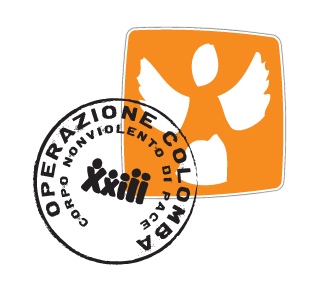Jerusalem – Denied city
Sumaya looked at the way to go, once past the checkpoint. In about 15 minutes, she would arrive at the U.S. Embassy to apply for the visa. A taxi was waiting for her outside the checkpoint, everything had been planned in detail. She had received a permit to enter Jerusalem for three hours, not a minute more. She had to manage it!
At 9 am she had to be at checkpoint 300 in Bethlehem. She had left her home in the South three hours earlier, well in advance. As expected, the Israeli controls had detained her so much so that it had taken almost two hours to go past the checkpoint instead of half an hour. But at last, Sumaya was passing through the controls. She watched the Israeli officials look at her permit, scrutinize it. Behind them, a clock ticked away the minutes - the time she would not have used to enjoy Jerusalem.
Finally, at 9.30 am she took a taxi and reached the Embassy shortly after. Only two hours left. Other officials were checking her passport, asking her why she was there, what she should do in the United States. She felt almost guilty, and that suspicious glance did not differ from the stare of the Israeli officials who had asked her the same questions earlier.
Then Sumaya went upstairs and sat in silence, waiting for her turn. The window showed a view of Jerusalem: the old city, the Al-Aqsa Mosque, the souk. It was not the first time she had seen it; she had been there only once with her brother years before. Unfortunately he could never see these places again: demonstrating against the occupation had made it impossible to get a permit. He had to make do with the photo Sumaya was taking.
The Dome of the Rock glistened in the sunlight. She sighed, observing the walls of the old city, and imagined herself walking through the ancient alleys, the voices of the merchants, and the smell of spices. She imagined herself walking towards the great mosque and staying in the large open space around it for minutes, hours, perhaps days. Through the window, she could see the foreign tourists crowding into the streets without restrictions, free to move around, stop, take photographs, and visit every corner of the city, forbidden to Palestinians like his brother. Lucky them, she thought. Sumaya knew that it would remain a dream for her: Israel would never give her enough time to visit Jerusalem. Three hours was not enough time to apply for a visa, nor to let alone to visit that great city.
Three hours had passed when Sumaya went through the checkpoint again; her father and brother were waiting on the other side. She remained silent after saying that they had denied her a visa. Then she took the phone and showed the pictures she had taken from the embassy’s window while she has waited. Those photos were the only consolation she had left. The only memory of that Jerusalem she had dreamed of.
In the West Bank, Israel controls all the entry and exit points, including those leading to East Jerusalem. During the first intifada, Israel established a system that, even today, requires all Palestinians living in the Occupied Territories to obtain a permit to enter Jerusalem for any reason, whether for work, medical treatment, family visits, trips to religious or cultural places. Israel has never clarified the criteria governing the system of these permits, so there is no way to assess the timing of the release nor the possibility that applications will be approved. Being on the Israeli Intelligence blacklist - which holds the final power to release the permission- is enough to have your application rejected for "security reasons”. When permits are issued, they are temporary and can be revoked at any time if any problem occurs that, according to the Israeli Intelligence, may justify its suspension.
Israel uses this control system not only to prevent Palestinians from entering Jerusalem and Israel, but also to monitor all foreign travels from the West Bank that require Israeli approval.
The regime of permits is only one of the strategies of the occupation that, in addition to violating the right to freedom of movement, aims at segregation, containment and control of the Palestinians’ lives.


 OPERAZIONE COLOMBA
OPERAZIONE COLOMBA
